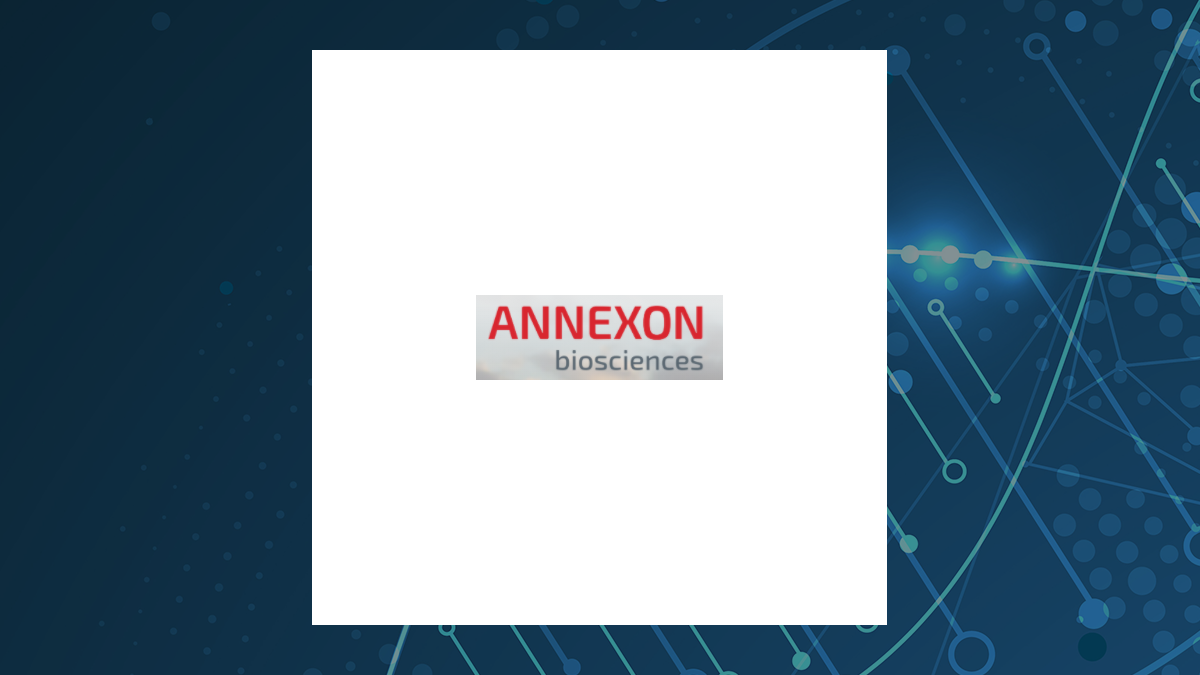Prothena (NASDAQ:PRTA – Get Free Report) and Annexon (NASDAQ:ANNX – Get Free Report) are both small-cap medical companies, but which is the better investment? We will compare the two companies based on the strength of their institutional ownership, earnings, analyst recommendations, dividends, profitability, risk and valuation.
Risk and Volatility
Prothena has a beta of 0.08, suggesting that its stock price is 92% less volatile than the S&P 500. Comparatively, Annexon has a beta of 1.07, suggesting that its stock price is 7% more volatile than the S&P 500.
Profitability
This table compares Prothena and Annexon’s net margins, return on equity and return on assets.
| Net Margins | Return on Equity | Return on Assets | |
| Prothena | -98.86% | -24.19% | -20.59% |
| Annexon | N/A | -38.99% | -33.90% |
Analyst Recommendations
| Sell Ratings | Hold Ratings | Buy Ratings | Strong Buy Ratings | Rating Score | |
| Prothena | 0 | 2 | 5 | 0 | 2.71 |
| Annexon | 0 | 0 | 6 | 0 | 3.00 |
Prothena currently has a consensus target price of $46.50, indicating a potential upside of 236.47%. Annexon has a consensus target price of $15.80, indicating a potential upside of 426.67%. Given Annexon’s stronger consensus rating and higher possible upside, analysts clearly believe Annexon is more favorable than Prothena.
Institutional & Insider Ownership
97.1% of Prothena shares are held by institutional investors. 28.2% of Prothena shares are held by insiders. Comparatively, 12.7% of Annexon shares are held by insiders. Strong institutional ownership is an indication that large money managers, hedge funds and endowments believe a company will outperform the market over the long term.
Valuation and Earnings
This table compares Prothena and Annexon”s revenue, earnings per share (EPS) and valuation.
| Gross Revenue | Price/Sales Ratio | Net Income | Earnings Per Share | Price/Earnings Ratio | |
| Prothena | $91.37 million | 8.14 | -$147.03 million | ($2.48) | -5.57 |
| Annexon | N/A | N/A | -$134.24 million | ($1.05) | -2.86 |
Annexon has lower revenue, but higher earnings than Prothena. Prothena is trading at a lower price-to-earnings ratio than Annexon, indicating that it is currently the more affordable of the two stocks.
Summary
Annexon beats Prothena on 8 of the 13 factors compared between the two stocks.
About Prothena
 Prothena Corporation plc, a late-stage clinical biotechnology company, focuses on discovery and development of novel therapies to treat diseases caused by protein dysregulation in the United States. The company is involved in developing birtamimab, an investigational humanized antibody that is in Phase III clinical trial for the treatment of AL amyloidosis; Prasinezumab, a humanized monoclonal antibody, for the treatment of Parkinson’s disease and other related synucleinopathies which is in Phase IIb clinical trial; NNC6019 that is in Phase lI clinical trial for the treatment of ATTR amyloidosis; and BMS-986446 and PRX012, which is in Phase I clinical trial for the treatment of Alzheimer’s disease. Its discovery and preclinical programs include PRX123, a dual Aß-Tau vaccine for the treatment and prevention of Alzheimer’s disease; and PRX019 for the treatment of neurogenerative diseases, as well as TDP-43 for the treatment of amyotrophic lateral sclerosis. Prothena Corporation plc has a license, development, and commercialization agreement with F. Hoffmann-La Roche Ltd. and Hoffmann-La Roche Inc. to develop and commercialize antibodies that target a-synuclein, including prasinezumab; and a collaboration agreement with Bristol-Myers Squibb to develop and commercialize antibodies targeting tau, TDP-43. The company was incorporated in 2012 and is based in Dublin, Ireland.
Prothena Corporation plc, a late-stage clinical biotechnology company, focuses on discovery and development of novel therapies to treat diseases caused by protein dysregulation in the United States. The company is involved in developing birtamimab, an investigational humanized antibody that is in Phase III clinical trial for the treatment of AL amyloidosis; Prasinezumab, a humanized monoclonal antibody, for the treatment of Parkinson’s disease and other related synucleinopathies which is in Phase IIb clinical trial; NNC6019 that is in Phase lI clinical trial for the treatment of ATTR amyloidosis; and BMS-986446 and PRX012, which is in Phase I clinical trial for the treatment of Alzheimer’s disease. Its discovery and preclinical programs include PRX123, a dual Aß-Tau vaccine for the treatment and prevention of Alzheimer’s disease; and PRX019 for the treatment of neurogenerative diseases, as well as TDP-43 for the treatment of amyotrophic lateral sclerosis. Prothena Corporation plc has a license, development, and commercialization agreement with F. Hoffmann-La Roche Ltd. and Hoffmann-La Roche Inc. to develop and commercialize antibodies that target a-synuclein, including prasinezumab; and a collaboration agreement with Bristol-Myers Squibb to develop and commercialize antibodies targeting tau, TDP-43. The company was incorporated in 2012 and is based in Dublin, Ireland.
About Annexon
 Annexon, Inc., a clinical-stage biopharmaceutical company, discovers and develops medicines for treating inflammatory-related diseases. Its lead candidate is ANX005, an investigational full-length monoclonal antibody, which is in Phase 3 clinical trial for the treatment of patients with guillain-barré syndrome; completed Phase II clinical trial for treating Huntington's disease; and in Phase II clinical trial for the treatment of amyotrophic lateral sclerosis. The company is also developing ANX007, an antigen-binding fragment (Fab) that is in Phase 3 program for the treatment of patients with geographic atrophy; and ANX1502, a novel oral small molecule inhibitor, which is in Phase 1 clinical trials for autoimmune indications. In addition, it develops ANX009, a C1q-blocking Fab that is in Phase I clinical trial for treating patients with lupus nephritis. The company was incorporated in 2011 and is headquartered in Brisbane, California.
Annexon, Inc., a clinical-stage biopharmaceutical company, discovers and develops medicines for treating inflammatory-related diseases. Its lead candidate is ANX005, an investigational full-length monoclonal antibody, which is in Phase 3 clinical trial for the treatment of patients with guillain-barré syndrome; completed Phase II clinical trial for treating Huntington's disease; and in Phase II clinical trial for the treatment of amyotrophic lateral sclerosis. The company is also developing ANX007, an antigen-binding fragment (Fab) that is in Phase 3 program for the treatment of patients with geographic atrophy; and ANX1502, a novel oral small molecule inhibitor, which is in Phase 1 clinical trials for autoimmune indications. In addition, it develops ANX009, a C1q-blocking Fab that is in Phase I clinical trial for treating patients with lupus nephritis. The company was incorporated in 2011 and is headquartered in Brisbane, California.
Receive News & Ratings for Prothena Daily - Enter your email address below to receive a concise daily summary of the latest news and analysts' ratings for Prothena and related companies with MarketBeat.com's FREE daily email newsletter.
